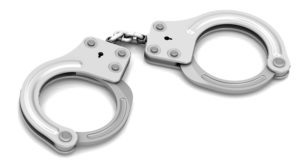
If you are concerned that you could be convicted of an offense that will require registration in Nevada, you should strongly consider talking with a Las Vegas defense lawyer who can help you to try to fight the conviction. If you have already been convicted of felony offenses that necessitate registration, you can also reach out to LV Criminal Defense to find out Nevada’s laws on registering and to make sure that your rights are respected.
Give us a call today to learn more about Nevada’s laws and to find an advocate who can help you to navigate all phases of involvement with the criminal justice system.
Nevada Revised Statutes sections 179.100 through 179.120 establish the rules and requirements for the registration process and detail the types of information that must be submitted by a convicted person who needs to register. N.R.S. Sections 179C.160 and 179C.170 explain what happens to the registered information: it must go to Nevada’s Central Repository but it must be kept separate from other criminal records within the repository and it is available for inspection only to law enforcement agencies and other authorized parties.
These rules, together, aim to promote public safety by making certain that convicted persons with felony offenses on their record are registered with the state, while still protecting the rights of convicted persons by limiting the use of the registration information.
Chapter 179C also establishes certain prohibited acts in connection with registration, and details the penalties that can result when prohibited acts are committed. In particular, N.R.S. 179C.200 prohibits misleading information; N.R.S. 179C.210 establishes a continuing duty to furnish statements and N.R.S. 179C sets forth penalties for failure to comply with legal requirements.
Nick Wooldridge has a long track record of representing clients accused of serious federal and state crimes in Nevada.
In N.R.S. 19C.200, the state of Nevada makes clear that no convicted person who is required to register should make any false statements or provide any misleading information. Convicted persons must provide their actual, true address and should not give a fictitious address or otherwise provide inaccurate information when registering.
N.R.S. 179C.210 explains that a convicted person who is required to register has a continuing duty to provide the required registration information to the police. This means that for each day that a convicted person is required to register but fails to do so, a separate offense has been committed.
Finally, N.R.S. 179C.220 explains the penalty not just for these particular prohibited acts, but also for any violation of any of the requirements and mandates found in N.R.S. 179C.220. Those who fail to fulfill any of their obligations in Chapter 179C, and those who make misleading statements, will all be at risk of being charged with a misdemeanor offense.
Nick Wooldridge – a Las Vegas criminal lawyer at LV Criminal Defense – knows the laws on registration for convicted persons inside-and-out. Our legal team is here to help you understand these laws so you can protect your rights and successfully navigate the criminal justice system.
Whether you turn to our firm for help avoiding conviction or you want a legal advocate to help you to protect your rights in the aftermath of a conviction, we can assist you. Give us a call today to talk with a knowledgeable Las Vegas defense lawyer about the many ways in which we can help with your case during all phases of involvement with the criminal justice process.
When I initially met with Mr. Wooldridge, he took the opportunity to sit and go over my problem with me. He described details in my case which he found disturbing and explained why he I should have him on my side.